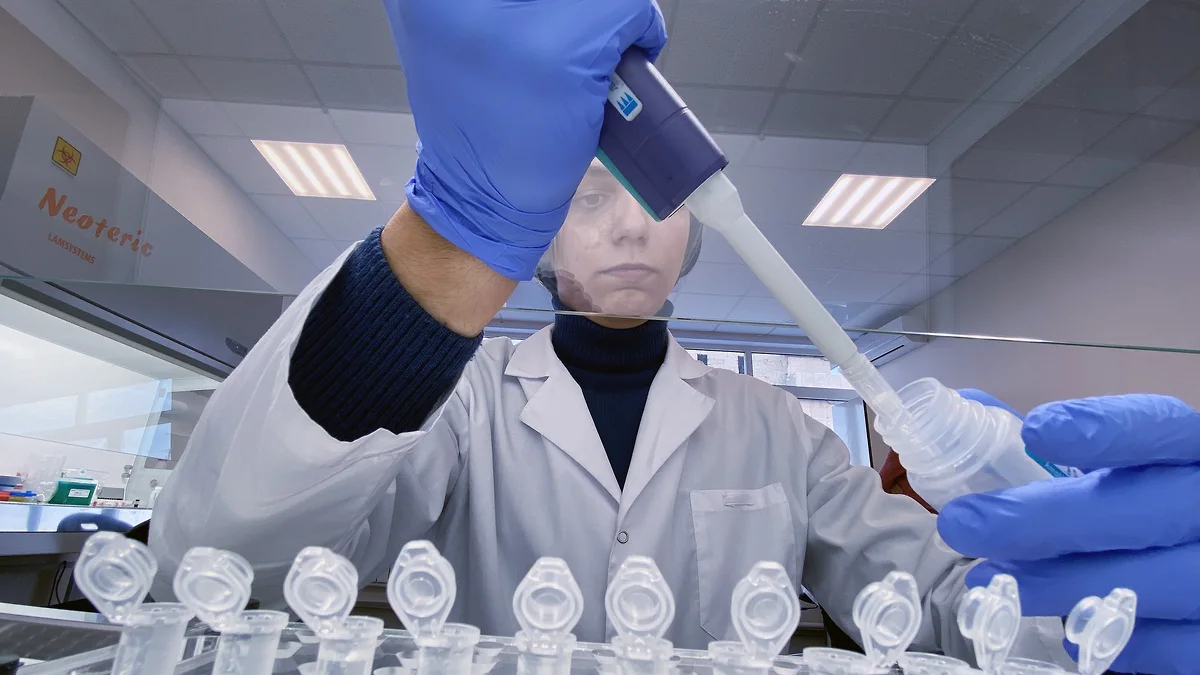Kommersant writes about changes in the COVID-19 testing market
08/05/2021

COVID-19 rapid tests, which experienced feverish demand in last year’s lockdown, are now falling out of favor with the Russian public. In Q2 2021, sales of these products at retail pharmacies fell by an average of 20%. Still, vacationers seeking to travel have begun testing more frequently in medical laboratories and health clinics. This has allowed many companies to at least double their revenue.
Pharmacy of rapid tests, which offer customers a quick and easy means to detect a COVID-19 infection, fell 20% in the second quarter of 2021 compared to the first quarter, as reported by ASNA (an association of about 12,000 pharmacies across the country) to Kommersant. Rigla and 36.6, two leading networks, have not commented on the current trend. All the networks interviewed by Kommersant declined to name actual revenue numbers in this segment.
The drop in retail demand for COVID-19 rapid tests and antibody tests was confirmed by DSM Group CEO Sergey Shulyak and RNC Pharma Development Director Nikolay Bespalov. Previously, demand for rapid tests increased in the spring and summer of 2020, during and after the nationwide lockdown.
Mr. Shulyak believes that the current decline in demand is due to the lack of legal relevance independently conducted tests, which is important for travelers leaving the country and a critical factor when QR codes were still required to visit food service establishments in Moscow.
Nikolai Bespalov added, "The accuracy of such tests also leaves much to be desired."
Fyodor Kurkin, CEO of Avivir (one of the major distributors of test systems), claims that the company's revenue from COVID-19 rapid tests has in fact increased by 50% year-over-year and continues to increase, despite the general drop in the market price of these products. He expects that demand for rapid tests from the public and corporate segments will rise again in the fourth quarter of this year. Sales by pharmaceutical retailers will most likely increase as well after the approval of saliva-based rapid tests by Roszdravnadzor, according to Mr. Kurkin. Mr. Shulyak also admits the possibility of high demand for these new saliva tests from large employers or retailers and hoteliers.
At the same time, there has been a noticeable increase in demand for PCR tests by medical laboratories and clinics among the Russian public.
According to results from Q2 2021, the Invitro laboratory network recorded a more than twofold increase in demand for their entire COVID-19 test line compared to the first quarter. For Helix, growth in orders for PCR testing in Q2 was estimated at 15%, while antibody test orders increased by 66%. They added that from May to June, demand for COVID-19 antigen tests, which are performed much faster and cost almost twice as much as PCR tests, increased by 250%.
In the Medsi Group of medical clinics, the number of coronavirus tests in the second quarter increased 350% compared to the first quarter. They added that the network's revenue from these tests doubled in the second quarter.
Clinics and laboratories continue to see increased revenue from COVID-19 tests, even in spite of a reduction in the unit cost of these tests by 2,000 rubles under pressure from the Federal Antimonopoly Service. These restrictions have not affected the industry’s operations at all, according to Dmitry Shulyak.
Daria Goryakina, Deputy CEO of Helix, notes that demand for laboratory antigen tests peaked in June, when Turkey began to recognize such tests for Russian tourists entering the country.
Market players predict that testing demand will decrease this fall, with the next surge occurring in winter. Citilab, on the contrary, expects a drop in demand for tests between November andDecember of this year, barring a new surge of infections.
Загрузить ещё